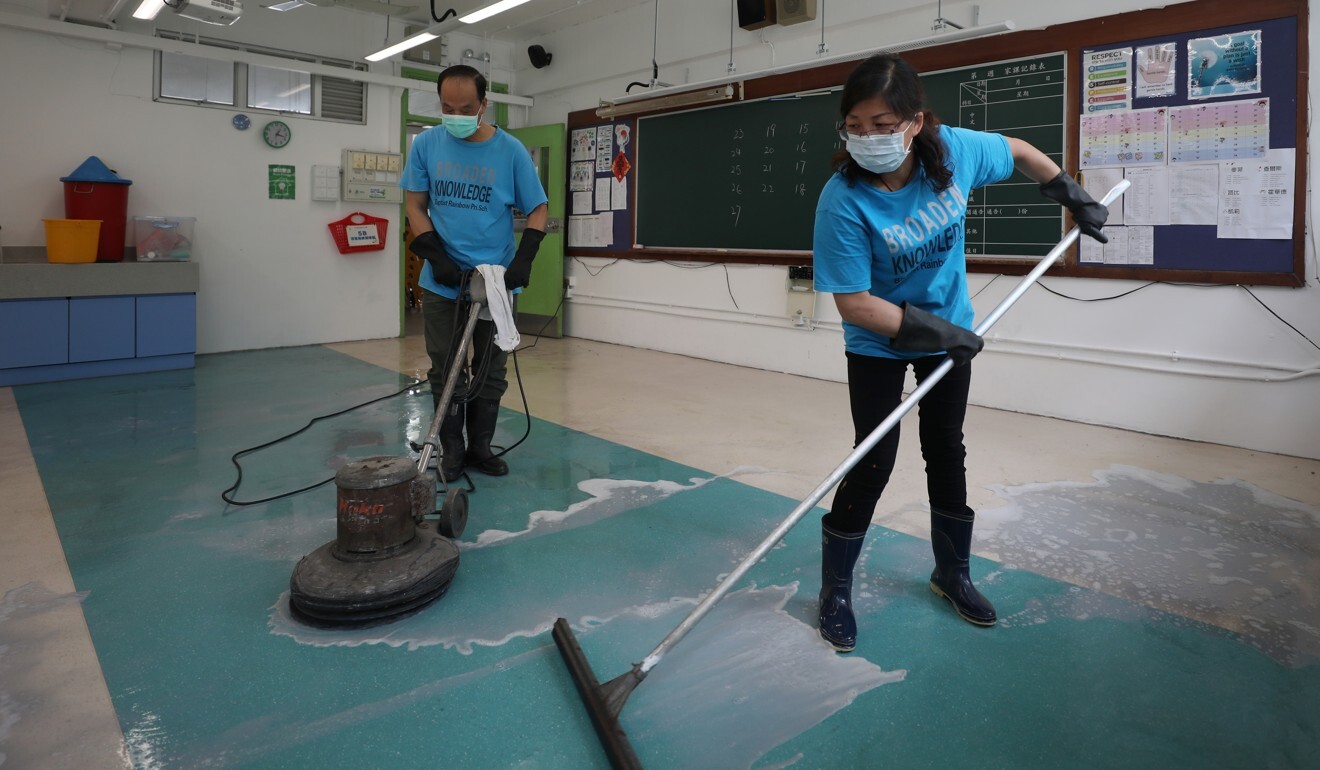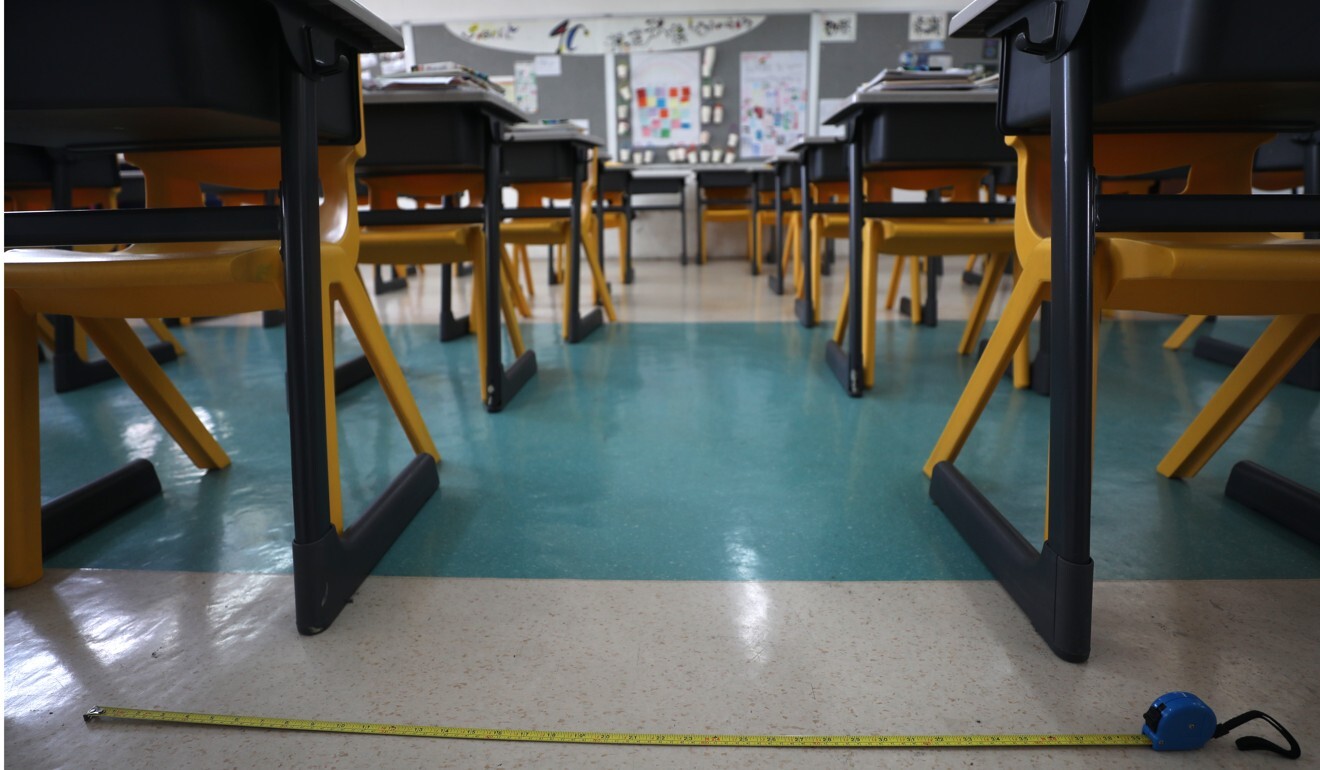
Hong Kong education officials planning to transport cross-border students directly from checkpoints once classes resume
- Education Bureau and heads of various schools discuss preparatory plans on Tuesday as classes are set to resume gradually from May 27
- Some ideas being considered are opening more border checkpoints, frequent Covid-19 tests and direct transport to schools to avoid infection risks
Hong Kong education officials are planning to transport up to 27,000 cross-border students directly from various checkpoints to their schools, and make coronavirus tests mandatory when classes resume in phases by the end of this month.
The ideas were discussed at a meeting between the Education Bureau and heads of various schools on Tuesday as part of preparations for the resumption of face-to-face classes from May 27, after a four-month suspension.
Secretary for Education Kevin Yeung Yun-hung earlier said the governments in Hong Kong and Shenzhen had been working out arrangements for the students, but could not guarantee all issues would be fully resolved by the end of May.
Principal Leung Chi-man, chairman of the North District Primary School Heads Association, told the Post that education officials had been considering arranging transport for Hong Kong students who lived in mainland China to travel directly to their schools from the border checkpoints.
He said this would ensure the students did not need to take public transport and would reduce the risk of infection.

Leung said authorities were also considering mandatory virus tests for the students on the mainland, and the issuance of health certificates that would be recognised on both sides of the border.
“It is likely that the virus tests would be carried out regularly. But it has not yet been decided how frequently the tests would be conducted, every week or twice a month,” he said.
Leung added that officials were also considering reopening at least one more border checkpoint apart from the one open at Shenzhen Bay, but he felt that even with two checkpoints, it would be difficult to operate smoothly with so many students crossing the border.
Some local parents worry cross-border students might spread the virus in Hong Kong if they got infected on the mainland.
Chu Wai-lam, principal of Fung Kai No 1 Primary School in Sheung Shui, said it would be ideal if cross-border students and school bus drivers and minders could undergo virus tests upon the resumption of classes. About half of the school’s 1,100 students live in Shenzhen.
“Some local parents worry cross-border students might spread the virus in Hong Kong if they got infected on the mainland. But similarly, [people living in] Shenzhen might also worry about contracting the virus in Hong Kong and bringing it back home,” he said.
Hong Kong’s 27,000 cross-border pupils face commuting problems over quarantine rules
Chu said more passageways should be designated for the cross-border students at the checkpoints, while more staff should be on standby to facilitate and speed up their journey.
Fielie Fung Yiu-cheung, principal of Baptist Rainbow Primary School in Kowloon – where more than 100 out of 600 pupils come from across the border – said some parents had even suggested that cross-border students should sit separately in other classrooms, or should come to the school during times meant only for them.
But Fung said the suggestions were mostly impractical as only limited classrooms were available, adding that separating students could result in discrimination.
Sunny Liu, the mother of a student who lives in Shenzhen, said some parents were worried that if the border issue was not resolved before the schools resumed classes, their children would not be able to join and would fall behind others in learning.

Liu said many parents used to cross the border at Lo Wu, Lok Ma Chau and Man Kam To checkpoints, all of which had been closed due to the coronavirus pandemic.
She also said parents would support the idea of conducting virus tests but expressed concern about how it would be carried out.
“How should the tests be carried out? Should students be tested in hospitals or at border checkpoints? Parents have been talking about these issues lately,” she said.
Andy Chan, 15, a Form Four student at a North district secondary school, said it would be unfair if cross-border students were unable to return to Hong Kong when classes resumed.
Chan, whose mother is a Hongkonger and father is a mainlander, lives in Yantian district in Shenzhen near Sha Tau Kok checkpoint. He has been crossing the border to come to school since kindergarten.
“I hope the Hong Kong government will reopen the Sha Tau Kok checkpoint so I won’t have to travel to Lo Wu to go to school. Going to Lo Wu would mean I would have to wake up earlier and might even get to school late if I got stuck in a traffic jam,” he said.
Help us understand what you are interested in so that we can improve SCMP and provide a better experience for you. We would like to invite you to take this five-minute survey on how you engage with SCMP and the news.

